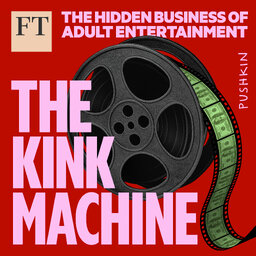Miseducation and Climate Change
Katie Worth, investigative reporter and author of the new book Miseducation: How Climate Change Is Taught in America, reviewed science textbooks from all fifty states and travelled the country interviewing teachers and students to compile a narrative about how climate change is being taught in American public schools.
She joins Noah to discuss the partisan divide in climate change education, the lobbying forces shaping curriculum around the country, and challenge of balancing students’ right to learn the facts with teachers’ values and opinions.
Learn more about your ad-choices at https://www.iheartpodcastnetwork.com
In 1 playlist(s)
Deep Background with Noah Feldman
Behind every news headline, there’s another, deeper story. It’s a story about power. In Deep Backgro…Social links
Follow podcast
Recent clips

From The Kink Machine: The Hidden Business of Pleasure
31:30

The Future of COVID-19 with Marc Lipsitch
37:05

How One Bank Shaped American Capitalism
32:06
 Deep Background with Noah Feldman
Deep Background with Noah Feldman